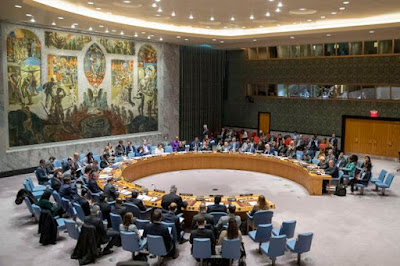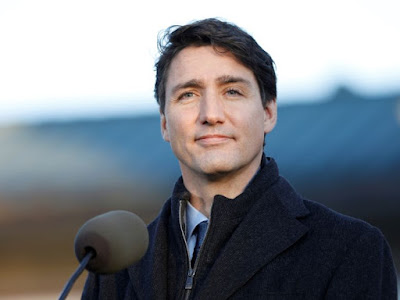 |
| Those who advocate for a Canadian Security Council seat – one such meeting seen here on Nov. 20, 2019 at United Nations headquarters in New York City – say it is preferable to have a seat at the table than none at all. MARY ALTAFFER/THE ASSOCIATED PRESS |
Among the many promises delivered in its Throne Speech last week, the government reaffirmed its commitment to securing a seat on the 2021–2022 UN Security Council. It’s one of the leftover pledges from Prime Minister Justin Trudeau’s first term, when he declared that the peacekeeping country of our collective memories (or perhaps our collective imaginations) was “back.” Mr. Trudeau’s leadership was to see to a more progressive, honest-broker approach to foreign policy, which would be capped off in his second term with Canada reclaiming its seat at this ostensibly important table.
And that is, in the most literal sense, what Canada will win if it is successful in its bid for a non-permanent position on the Security Council. It will have a seat, possibly a name plate and one of 10 non-permanent member votes, which can be arbitrarily overruled by any of the five permanent members. Canada’s material influence at the table will thus be negligible, but our government will still engage in the cynical courting and vote swapping necessary to win, if only for bragging rights and a chance to sit in that chair.
Typically, most of the cynical courting for a rotating Security Council seat happens behind the scenes — with trips, gifts, promises and alliances — but the Trudeau government made a most obvious gesture last month when it voted in favour of a United Nations resolution recognizing Palestinian self-determination and criticizing Israeli settlements.














